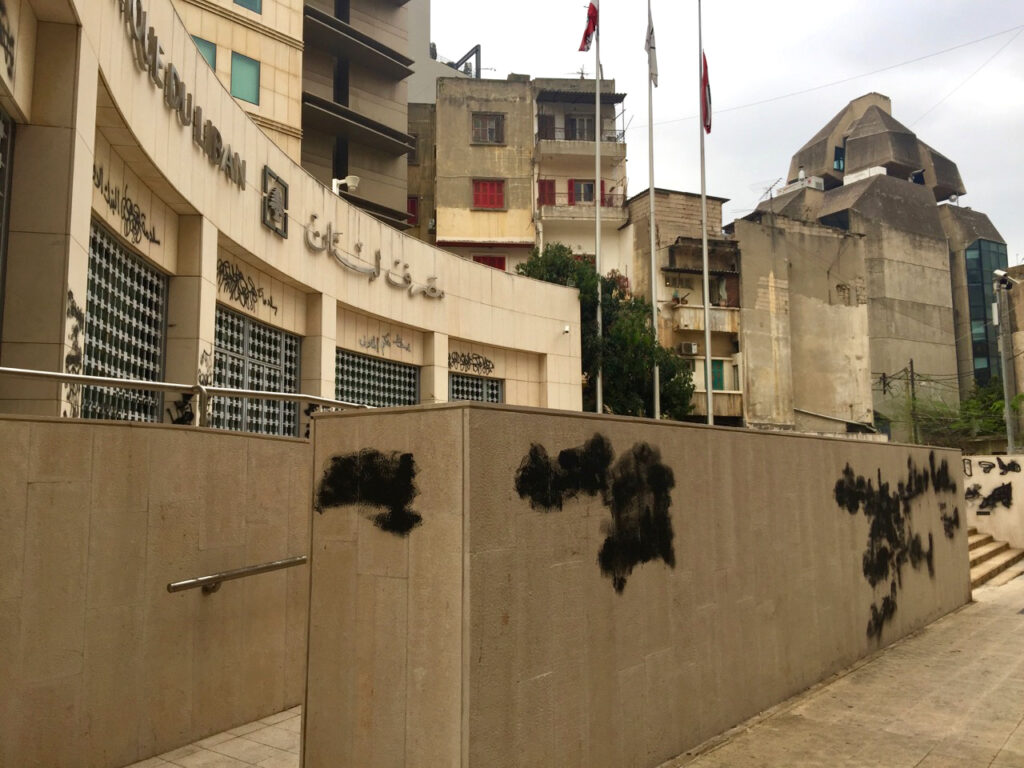Lebanon Was Never Like This
Nishan and Maria Bakalian serve with the Union of Armenian Evangelical Churches in Lebanon.
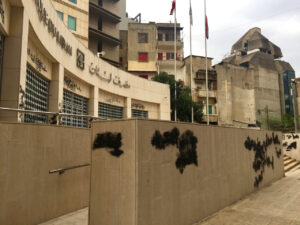
I was sitting in the living room of a family near where we live. The family consists of elderly parents and their grown daughter. The conversation quickly and inevitably turned to the miserable state of the country, where neighborhoods receive a maximum of three hours of electricity a day, where the money is losing its value by the hour, where the simplest of meals – bread, cheese, and cucumber, is out of the reach of many households. The young woman before me, whose income is just enough for her to afford her parents’ medicines, spoke in exasperation, “Lebanon was never like this!” Even when bullets were flying during the civil war (1975-1990), there was still work, electricity, food, and water. One did not have to spend three hours lined up waiting to fill your car’s gas tank. During that war, there was hope that things would improve. Now all of that has collapsed, due to impotent and malevolent leaders whose primary function is to justify themselves before a public who no longer believes their empty words, but whose little energy can only be spent on securing a little bread, some medicine, a few liters of gasoline, with nothing left over for protesting or pushing for change.
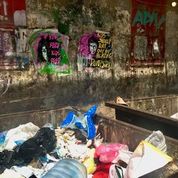
What was Lebanon like then? In its heyday of the 1950s and 60s, it was an exciting, attractive place for its many tourists, who dubbed it “the Paris of the Middle East.” Yet the seeds of today’s misery were sown much earlier, because its system, inherited from the French, was built on competing socio-religious groupings and a weak central government. There were certainly commercial opportunities if you had the initiative and the proper “connections.” With its banking secrecy laws, it was a haven for investments of all shapes and sizes. For a minority community like the Armenians, it afforded not only a refuge from the Armenian Genocide (1915-1922), but welcoming soil in which to plant new homes, churches, and schools and become a productive and positive part of Lebanese society. Yet all of this began crumbling in those very heydays, until the Civil War of 1975-1990 and continued during the greed-based economic bubble that followed. That bubble popped over 15 years ago. Now, the contrast between the rich, the ruling class, and the impoverished population (including those still faithful to their party bosses, while still enduring deprivations) is starker than ever. A Western ambassador waits in line under the unforgiving sun for hours in order to fill up her car’s gas tank; observing this, local media asked Lebanese lawmakers and ministers how they fill their tanks. “The guys” take care of it, they said, referring to their drivers and bodyguards.
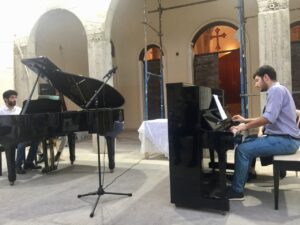
So, what is Lebanon like now? Somehow, despite the pain, the loss, the hunger, the daily misery, and humiliation, the parents insisting that their children emigrate as soon as they are able, it still shows glimmers of life, truth, and hope. There is art and music being created, as evidenced by sculptures and murals depicting the struggles and sorrows of the people, and their dreams for a better future – without the current political class at the helm. Artists are making use of the rubble from the August 4, 2020 port explosion for some of their creations, even as the government has left the blast site in nearly the same, ruined state as it was on August 5. Architectural organizations are working to restore the traditional homes of “Old Beirut” near the port so that they do not meet the fate of the downtown area, which was almost entirely razed to the ground by the post-war “boom.”
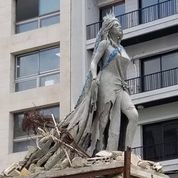
In early July, some young musicians contacted one of the churches of the UAECNE (a partner church of the Christian Church (Disciples of Christ) and the United Church of Christ, as well as of the Armenian Missionary Association of America), located in one of the poorer areas outside the city. Their request of the pastor was to be able to present a free classical concert in one of the many concrete jungles the Lebanese inhabit. They stated that their aim was to bring the light and beauty of music to soothe the wounded souls of their fellow Lebanese. It was a concert of the highest caliber, presented on two pianos on the patio in front of the church sanctuary. Residents enjoyed the classical pieces from their balcony, and even the crying babies, barking dogs, and revving motor-scooters curtailed their usual din, while melodies filled that neglected corner of Lebanon that evening.
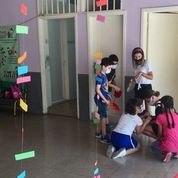
Another point of beauty and hope is the children’s ministry that has come back, albeit in a limited form, following the easing of COVID-19 restrictions. Local churches and social service centers, including those among whom we serve, are holding 5 or 6-week Vacation Bible School programs, enabling children to return to the important work of group play, while they also learn and sing about the love of God, and even apply themselves to school subjects in game format. All of this occurs under the watchful eye of youth volunteers and trained staff, who take note of issues arising from the children’s interaction and guide the children and their parents to appropriate interventions. It is a personal joy for us that despite the country being “like this,” this year our son has once more traveled here to join other local youth in reaching out through such ministries to care for the children of Lebanon.
What is Lebanon like these days? The list is long. While there are some who crush the souls of the people, there are others who lift their souls and share the Good News of the Lord Jesus Christ. Not far from this place, and in circumstances not very different from these, Christ presented his gospel to a crushed and burdened people, and by giving his life for that, was raised to a living hope in which all may partake. Our task in this land is to keep sharing that hope until God’s justice is victorious in all lands (Matt. 12.18-21).
Nishan and Maria Bakalian serve with the Union of Armenian Evangelical Churches in Lebanon. Their appointments are made possible by gifts to the Disciples Mission Fund, Our Church’s Wider Mission, and your special gifts.

